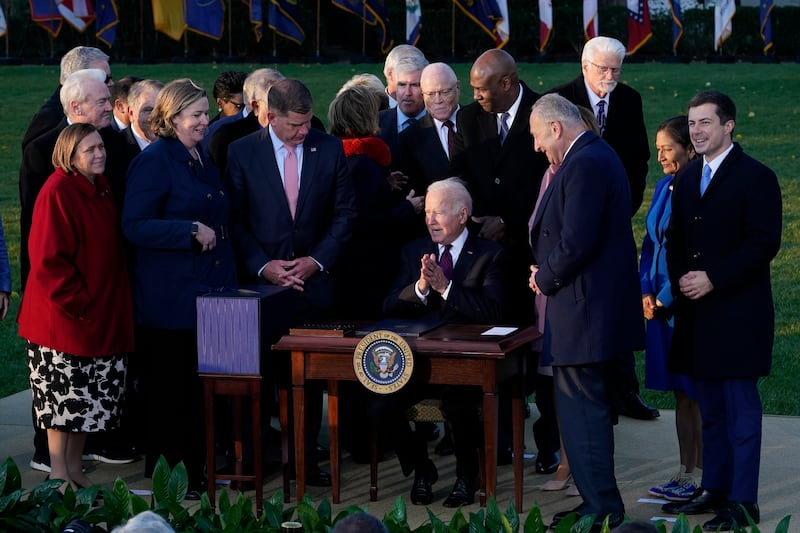Utah is a great place to live, work and raise a family. We have a booming economy driven by our entrepreneurial spirit, our talented workforce and our business-friendly tax climate. Utah is also one of the most naturally beautiful places on Earth, and Utahns are blessed with unparalleled year-round outdoor recreation opportunities.
Because of these reasons and many others, Utah was the fastest-growing state in the nation over the past 10 years, and Utah’s population boom isn’t projected to slow down anytime soon. In fact, Utah’s population is expected to double by 2065.
That said, you don’t have to look far to see the clear signs that Utah is feeling the painful effects of being America’s fastest-growing state. Whether it’s traffic congestion on I-15 during the morning and afternoon commutes, the housing shortage driving up home prices, the labor shortage, or the air pollution hanging over our valleys during winter inversions or summer ozone season, Utah is facing difficult challenges that need solving.
Fortunately, Congress did something that it all too often struggles to do — took decisive action and passed meaningful, bipartisan legislation that will help Utah address some of our state’s most pressing growth challenges.
Last week, Congress passed the bipartisan Infrastructure Investment and Jobs Act. This legislation, of which Utah’s own Sen. Mitt Romney was one of the primary authors and chief negotiators, will provide a historic level of federal investment in our nation’s critical infrastructure needs, such as roads, rail, public transit, broadband, and water projects throughout Utah and across America.
And because Utahns care deeply about and believe in fiscal discipline, it’s important to note that this legislation will not increase the deficit and will responsibly invest funds in these much-needed infrastructure projects without raising taxes on hard-working families and businesses in Utah.
This bipartisan infrastructure bill will provide more than $3 billion in federal funds for critical infrastructure projects across Utah. The largest piece of this infrastructure bill is aimed at transportation investments and authorizes funding for the U.S. Department of Transportation’s programs that will provide stability and funding for infrastructure projects over the next five years.
Utah has been a national leader in collaboratively planning for and investing in infrastructure, and Utah’s Unified Transportation Plan identifies priority needs for state and local roads, rail, bus and bike. The plan also outlines how those transportation systems integrate with local housing and economic development. This collaborative approach to planning helps Utah be well positioned to put these federal investments in this infrastructure bill to good and prudent use in our state immediately.
In addition to much-needed transportation projects, this infrastructure bill will also fund other projects such as the completion of the Central Utah Water Project, providing reliable utilities for Native American tribal lands in southeastern Utah, and the expansion of high-speed internet and broadband services to rural Utah.
It has been well reported that this infrastructure legislation, which was passed by the U.S. Senate with broad, bipartisan support in August, languished in the House of Representatives for nearly two months before being passed last week. Many — including Utah’s U.S. House members — expressed frustration that the passage of this bipartisan infrastructure legislation was tied to the eventual passage of a separate social spending reconciliation bill.
The good news is that Congress has now been able to move the infrastructure bill forward on its own merits, and the planned investments can now help Utah address our continued population growth over the coming decades. Growth is here, and this federal infrastructure investment can help us turn the challenges of growth into opportunities for better quality of life for all Utahns.
Andrew Gruber is the executive director of the Wasatch Front Regional Council.

